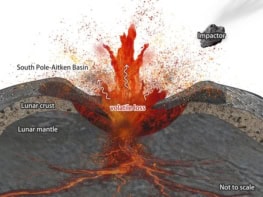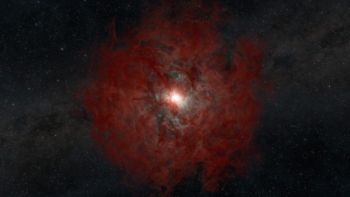Astronomical research is under threat from both the ground and space according to the International Astronomical Union (IAU). "The threats to astronomy not only jeopardise our ability to gain important new scientific knowledge by studying the universe, but also will increasingly affect other human activities," said IAU general secretary, Johannes Andersen, after a recent meeting in Austria. "In particular, outer space, once a pristine environment, is rapidly becoming overexploited and polluted." The main threats are light pollution, radio interference and space debris.
The meeting, “Preserving the Astronomical Sky,” was held in Austria a few days before UNISPACE III, a major conference sponsored by the United Nations (UN) that will look at the impact and influence of space research and industry in the 21st Century.
Light pollution has become an increasing problem in recent decades, with the resolution of many telescopes being degraded by light from nearby towns and cities. Radio interference from both ground- and space-based communication stations has also caused some radio telescopes to be closed down for hours upon time. There are also over 100,000 objects larger than 1 cm in low Earth orbit that can interfere with astronomical observations.
To combat the problem astronomers have called for the establishment “radio-quiet zones” where radio observatories can be protected from interference, and for urban planners to reduce “light leakage” when they build new houses and roads. They also want future space projects that might degrade the space environment at any electromagnetic wavelength to be subjected to an environmental impact assessment before they are approved.
“These problems are global in scale and effect, and long-term in nature,” said Anderson. “International efforts are needed to resolve them, as the UN already has done for the oceans and the Antarctic.”



